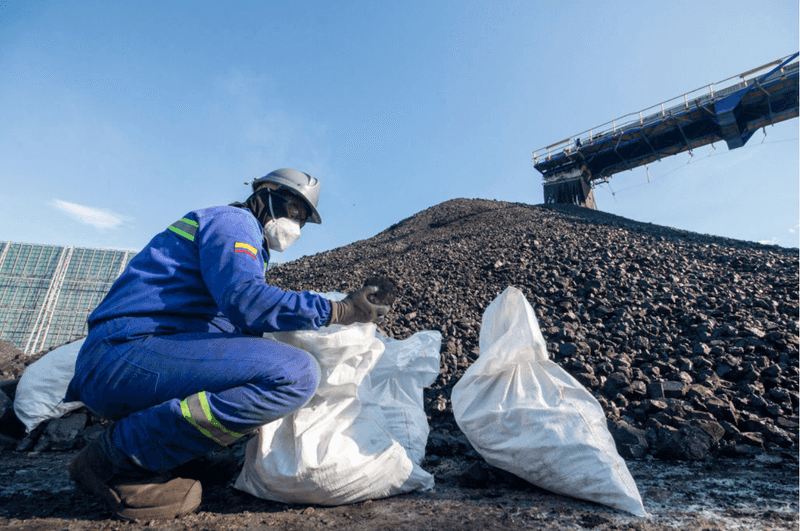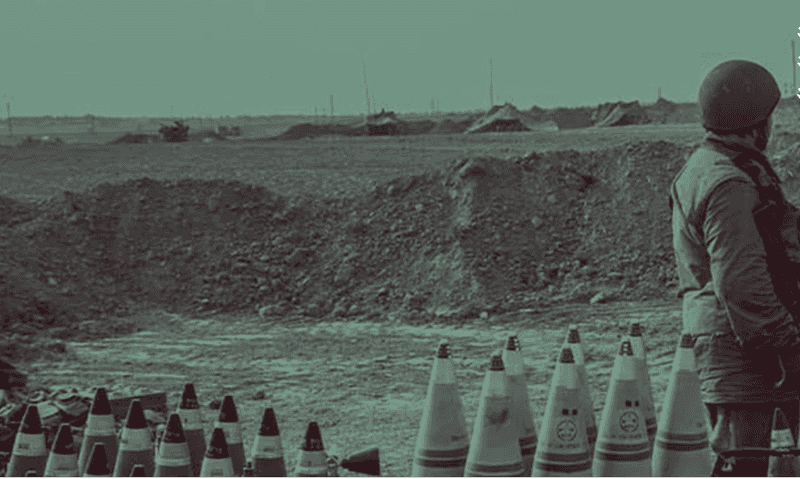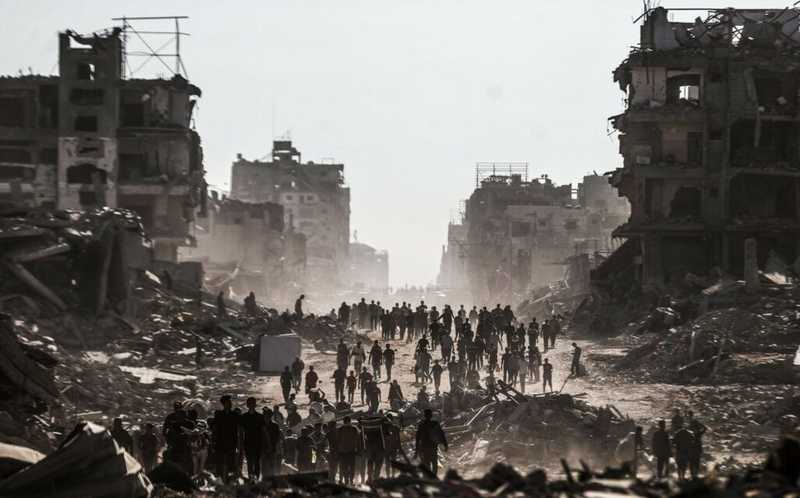
On June 8, Colombian President Gustavo Petro announced that his country will suspend coal exports to Israel until the genocide stops. Colombian coal accounted for more than 60 percent of all coal supplied to Israel in 2023, and the Israeli power grid depends on coal for 22 percent of its output. The same grid supplies electricity to Israel’s illegal settlements and arms factories as well as the infrastructure used by the Israeli military in perpetrating genocide against Palestinians in Gaza.
With Colombia being the largest coal exporter to Israel, this decision is not only a victory in symbolic terms but shows the enormous impact that a wider energy embargo could have in ending Israel’s genocide in Gaza, as well as the power of the transnational organizing that brought the decision about.
Only a few weeks into the genocide, the largest Colombian mine workers’ union, Sintracarbón, responded to a call for solidarity from the Palestinian trade union movement, issuing a statement demanding the halting of Colombian coal exports to Israel. In raising this demand, the miners also highlighted Israel’s nefarious role in training paramilitaries and mercenaries responsible for widespread atrocities in Colombia, and rallied workers globally to “stop the production of metals, minerals and fuels that are used in these wars . . . the planet is on the verge of a new world war and it is the workers who can and have the obligation to stop this threat against the existence of the human race”.
Building on this call, a coalition of Palestinian groups, under the banner of the Global Energy Embargo for Palestine, initiated a wider demand for a multilevel embargo against energy transfers that fuel Israeli genocide and apartheid over Palestinians. This included demands to end the transfer of energy to Israel, the purchase of Israeli gas, and the collaboration of energy companies in Israeli energy projects.
An energy embargo has the potential to place immediate and long-term pressure on Israel, particularly through the coal supply chain. Most of Israel’s coal comes from Colombia and South Africa, two states committed to standing with the Palestinian people. However, despite South Africa initiating the case at the International Court of Justice against Israel, and Colombia expelling the Israeli ambassador, coal exports from both states have continued unabated.
The Global Energy Embargo for Palestine campaign was born out of a connection between struggles, building on an alliance with Colombian trade unions and indigenous groups, both of whom have — in very different ways — a long history of struggle against the coal industry in Colombia. This coming together demonstrates that Palestinian cause is not isolated on a world scale, but part of a broader global movement for collective action and liberation.
The two main companies responsible for extracting coal destined for Israel are the Swiss Glencore and the American Drummond, which supply more than 90 percent of the Colombian coal sent to Israel. Their coal extraction has damaging effects of its own, especially on the Afro-descendant and indigenous populations of the country’s Caribbean north. They have been displaced from their lands, killed by toxic coal powder, and have had vital water resources, such as the Rancheria River, polluted and stolen from them. Environmental activists, tribal organizations, and trade unionists resisting environmental destruction have been consistently targeted and murdered by mining corporations and right-wing militias.
In their mobilizations, indigenous leaders drew parallels between their people’s struggles and the cause of Palestine, combining calls on Petro to cut trade ties with Israel with demands to hold mining companies responsible for their human rights violations in Colombia, as well as for enabling Israel’s genocide.
Petro’s announcement came after a transnational global day of action against Glencore for their human rights abuses on May 28, where Palestinian organizations wrote directly to the president with their demand that he end coal exports.
This mobilization brought about the monumental decision to suspend Colombian coal exports to Israel. It demonstrates how mobilizations across borders, with clear demands and through shared principles and values, can weave together an effective campaign that challenges global powers, imperialism, and colonialism.
It is reported that Israel has enough coal reserves to cover its immediate needs. However, it will need to turn to other suppliers, like Australia, Kazakhstan, Russia, and South Africa to address the shortfall, and will likely be forced to pay more in premiums.
This further highlights the need for the global energy embargo. If other states follow Colombia’s lead and commit to cutting off coal supplies, then the economic cost to Israel will be raised still further, acting as a major source of pressure to agree to a cease-fire.
Colombia’s announcement represents only the start of a global campaign to end the genocide and bring justice to the Palestinian people after over seven decades of colonial and apartheid rule by Israel.
The solidarity between Colombia and Palestine made it more likely the Colombian government would act on these demands. In other circumstances, more sustained mobilizations will be needed to be impactful. However, other key states, such as South Africa, which delivers around 9 percent of Israel’s coal, or Brazil, which provides Israel with crude oil exports, also ought to be targeted by global mobilizations.
States and international leaders who do not heed the call will remain complicit in Israel’s genocide of Gaza. An energy embargo is a crucial way to end this complicity — and for the global community to take a principled stand with the Palestinian people.
Rula Jamal is a jurist and human rights advocate.
Photo: Jacobin






